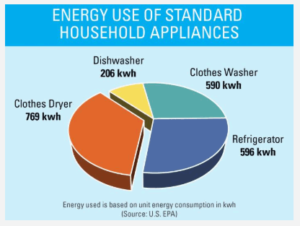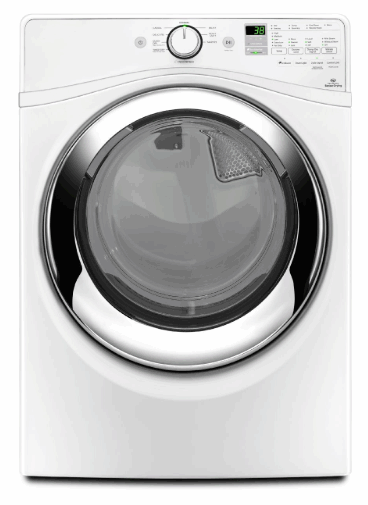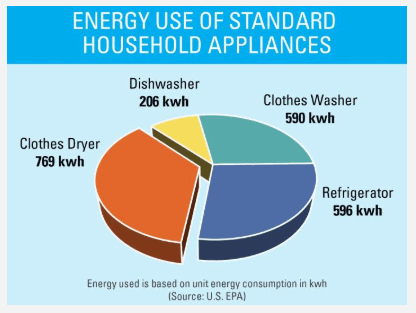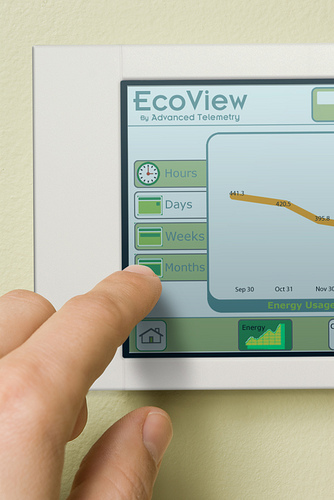
HVAC Unit
If there’s a single system in your house that’s a major energy hog, it’s definitely your HVAC unit. According to the rating agency “Energy Star“- “As much as half of the energy used in your home goes to heating and cooling. So making smart decisions about your home’s heating, ventilating, and air conditioning (HVAC) system can have a big effect on your utility bills — and your comfort.” Fortunately, modern iterations of these units are much more energy-efficient than their older counterparts.
Installed correctly, modern high-efficiency units can save up to 20 percent on heating and cooling costs. If your furnace or boiler is more than 15 years old. Consider replacing with an ENERGY STAR qualified furnace, which is 15% more efficient than a conventional furnace.
If you can replace your entire system, you’ll not only get much lower energy bills, but you’ll also get a house that gets to the right temperature much faster. Best of all, this kind of upgrade tends to eventually pay for itself in energy savings.
Washer/Dryer

ENERGY STAR certified dryers use about 20 percent less energy than conventional models without sacrificing features or performance.
Buying new will help you to save money on washer and dryer repair, and it will also allow you to make a positive contribution to the environment. Upgrading either appliance is a good idea, but upgrading both is almost always for the best.
Water Heater
The traditional hot water heater is a waste on many fronts. If you’re just looking at energy usage, it’s a hog that will drive up your bills. If you’re looking at timing, you’re looking at a device that requires heating up an entire tank of water just to give you a few minutes of heat. If you’re interested in a more time-and-energy efficient device, you can upgrade to a tankless heater.
Whole-home gas tankless water heaters apply the same principle to heat water as standard gas water heaters, but without a storage tank. They save energy by heating water only when needed, eliminating energy lost during standby operation. When a hot water tap is turned on in the home, cold water is drawn into the water heater. A flow sensor activates the gas burner, which warms the heat exchanger. Incoming cold water encircles the heat exchanger and leaves the heater at its set-point temperature. Combustion gases safely exit through a dedicated, sealed vent system. By heating water only when needed, instead of maintaining a tank full of hot water at all times, tankless water heaters can achieve greater efficiency than standard tank-type water heaters.
An ENERGY STAR certified gas tankless water heater uses a secondary heat exchanger to use 9 percent less energy than a conventional gas tankless water heater. The secondary heat exchanger extracts more heat from the combustion gas, cooling it to the point where there is condensation – hence these types of heaters are called “gas condensing.” These gas condensing tankless water heaters, like gas condensing furnaces, require venting through a vertical PVC pipe and a condensate drain.
Refrigerators
Finally, you’ll want to take a look at your refrigerator. The great thing about newer refrigerators is that they tend to be just as good as older refrigerators at keeping things cold, but they do so without using quite so much energy. Thanks to recent improvements in insulation and compressors, today’s refrigerators use much less energy than older models. With an ENERGY STAR certified refrigerator, you can maximize your energy and dollar savings without sacrificing the features you want.
Dishwasher
Dishwasher technology has improved dramatically over the last decade. New ENERGY STAR certified models include several innovations that reduce energy and water consumption and improve performance.
- Soil sensors test how dirty dishes are throughout the wash and adjust the cycle to achieve optimum cleaning with minimum water and energy use.
- Improved water filtration removes food soils from the wash water allowing efficient use of detergent and water throughout the cycle. The final clean-water rinse assures your dishes come out sparkling.
- More efficient jets use less energy to spray detergent and water over the dishes when cleaning.
- Innovative dish rack designs maximize cleaning by strategically situating the dishes.
Upgrading your home appliances can make your life easier and your bills lower. Look at replacing older equipment if you notice that you have high energy bills, especially if you’ve noticed that those machines are starting to slow down. A few little upgrades can make a huge difference in your home.
You might also like:



